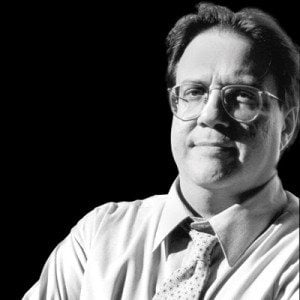A Tale of Two Editors

In September, two Texas editors announced they were stepping down—Fred Zipp at the Austin American-Statesman and Robert Rivard at the San Antonio Express-News. Rumors began to fly: They were tired of corporate types telling them what stories to run; they quit before they were forced out; they were “ink-stained” leftovers in a digital world; they refused to lay off more reporters.
“I have felt my passion for the job wane and decided to leave so that others can pick up the fight,” said Zipp in a story in the American-Statesman.
Rivard’s email to staff read: “I look forward to pursuing new opportunities in a new field.”
I asked both if they wanted to expand on how Texas editors who had guided their papers through tough storms and stories had moved on. I also asked each how he sees journalism in Texas, and what advice they have for young folks entering the field.
Zipp, who became managing editor in 2000 and editor in 2008, replied: “Thanks for the generous offer. I’m reluctant to adopt the role of wistful crank just yet, though, so I will pass. I’m confident whatever you are thinking is on target.”
Rivard, who became editor in 1997, simply said: “Ask me on or about Jan. 2.”
Whether you liked them or their newspapers, the two newspaper veterans were tasked with keeping their wounded publications on life support. And I would argue that you have to view their departures through the prism of the weird, often awful, history of journalism in Texas—and its future.
In the 1970s and part of the 1980s, the San Antonio Express-News was a laughingstock among seasoned journalists, molded by the absolute worst instincts of Rupert Murdoch. Under Murdoch’s ownership, the newspaper regularly featured pictures of local women in bikinis. There were bizarre contests, including one that involved readers delivering the tails of dead rats to the newspaper. There were aggressively insensitive stories, headlines and story promotions, including “Aliens In Desert Battle Over Urine,” about immigrants dying of thirst in the Texas-Mexico borderlands.
The newspaper barely covered the Latino and black communities on the east, west and south sides of the city. Emphasis skewed toward the “white north,” just as it did in Dallas, where The Dallas Morning News spent decades refusing to devote substantial coverage to the communities of color in South and West Dallas.
The American-Statesman never stooped as low as the Express-News when it came to lunatic sensationalism, but for good chunks of the 1970s and 1980s, it was an unambitious outpost for investigative news, and tone deaf to the grinding realities of black and Latino life. Like Texas Monthly on the statewide level, the American-Statesman sometimes wrote about its city in a self-congratulatory vein—more celebration, and fewer indictments of people in power.
Without question, the American-Statesman and the Express-News ultimately improved. Rivard, Zipp and others broadened coverage and enacted some technological advancements. And they continued moving their papers away from the temptations (celebration versus investigation) of the not-too-distant days of daily newspapering in Texas.
That said, there will always be debate about whether any modern editors in Texas ever went far enough. And there will always be debate about what readers really expected from their daily newspaper.
In the end, deciding what constitutes progressive coverage in an age of diminished resources and increased corporate intrusion is subjective. When I first subscribed to Rolling Stone, then an “underground” publication, it introduced a column called “Dope Notes,” a guide to what drugs were safe to buy on the streets of America. The Village Voice used to run articles that, to the crowd I ran with at Columbia University, were excellent blueprints for student revolution.
The real, lasting legacy of the two departing Texas editors might be defined by the revelation of any advertiser-friendly pressures they felt over the years from corporate bigwigs at Hearst and Cox Communications, which own the Express-News and American-Statesman, respectively.
What’s already certain is that with these departures, Texas is zooming away from a newspaper culture run by people with more ink than bytes in their veins. The resignations mark a paradigm shift. Journalists who were born in the digital age and are attuned to social media’s influence on the news will soon run Texas newsrooms.
That’s the real revolution at Texas newspapers, and the big question is whether the new editors will use their new tools to improve local journalism.
Until that’s determined, look for other top-level resignations to come in Fort Worth, Dallas and Houston.


